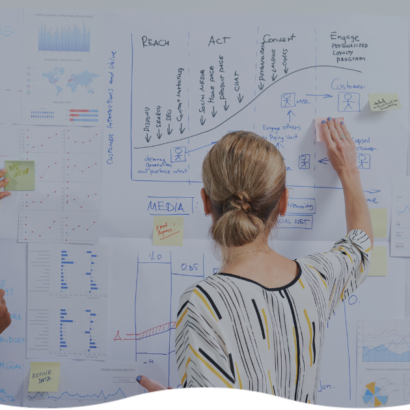

Marketing is an ever-evolving landscape, requiring constant learning and adaptation. Events like the B2B Marketing Expo offer invaluable opportunities to gain fresh insights, challenge our thinking, and refine our strategies. Here’s what we learned and how we’ll apply it as we head into 2025.
Revisiting and Refining Our Brand Promise
Branding is more than just a logo or a tagline—it’s a living, breathing entity. Some of the key takeaways from the branding strategy talk emphasised:
- Credibility and Authenticity: A brand must be aligned with its promise, continuously communicating what it stands for and why it exists. Authenticity is more crucial than ever, and customers need to see the human side of a brand.
- Perspective Matters: How is your brand perceived before customers even interact with it? Would your clients say your brand feels alive and consistent?
- Revisiting Your Foundations: It’s okay—and often necessary—to revisit your brand promise. It’s more than a few lines on a website; it should build trust, inspire credibility, and resonate with your audience.
This inspired us to consider how we align and communicate our own brand in every interaction.
Social Media for Growth
Social platforms have become essential for growth, but success lies in strategy. Here’s what resonated most with Yael:
- Platform-Specific Strategies: Different content works for different platforms. Businesses are thriving on TikTok, not just by being present but by presenting content tailored to their audience’s needs.
- Quality Over Quantity: Trying to maintain a presence on every platform can dilute effort. Focus on where your audience “shops” for solutions and perform well there.
Earning Trust, Not Buying It
Trust remains the cornerstone of effective marketing. Highlights included:
- Influencer Alignment: Collaborations succeed when influencers genuinely align with a brand’s values, not simply because they have the largest following.
- Defining Success: When embarking on influencer partnerships, clarity about goals and metrics ensures long-term value.
Strategic Thinking: The Key to Efficiency
In marketing, it’s tempting to keep churning out content. The expo underscored the importance of stepping back to strategise:
- Look at the Bigger Picture: Regularly assess your efforts to improve efficiency.
- Align Content with Strategy: Strategy shouldn’t sit in a folder; it should breathe life into your content and drive results.
Tracking the Right Metrics: Data as Your North Star
In a world flooded with data, it’s easy to get lost in the noise. At the expo, Maya was particularly reminded that not all metrics are created equal—what matters is focusing on the ones that truly drive your business forward.
- Clarity Over Complexity: Too much data can overwhelm rather than inform. The key is identifying the metrics that matter to your goals and tracking them consistently.
- Quality Metrics Over Vanity Metrics: Likes and impressions might look good on a report, but do they reflect meaningful progress? Shift your focus to actionable data points, like lead generation or customer retention.
- Data-Driven Decisions: Metrics should guide your strategy, not just report on past performance. Use insights to refine campaigns, allocate resources effectively, and identify areas for improvement.
- Continuous Evaluation: The marketing landscape changes quickly, so regularly reassess which metrics are most relevant to your evolving objectives.
Looking Ahead: AI and 2025 Tools
It is of no surpirse that AI and automation tools stood out as transformative for 2025. They offer endless possibilities to streamline processes, enhance customer experiences, and boost efficiency. However, an important takeaway from our learnings is the need to ensure these tools operate in alignment with your brand’s identity and values.
Our Takeaway
Attending the expo confirmed how advanced we are in our strategies, but it also highlighted areas where we can grow. For 2025, we’re doubling down on brand authenticity, strategic efficiency, and leveraging tools like AI to stay ahead. It’s a reminder that marketing is not static—adaptation and learning are what keep us relevant.


